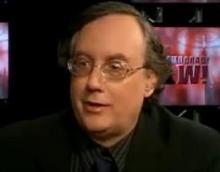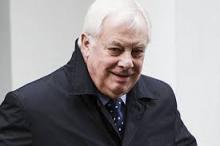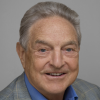The Kurdish Conflict: The Real Challenge to Turkey's Democracy
In the wake of the Arab Spring and Prime Minister Erdogan's championing of political reforms throughout the Arab world, it has now become more urgent than ever before to find an equitable solution to the Turkish-Kurdish conflict. Short of finding an immediate resolution to this debilitating struggle will not only severely compromise Turkey's suggested model of successfully combining Islam and democracy, but it will additionally bankrupt its moral standing as it willfully continues to discriminate against 15 million Kurds who represent one-fifth of its population.
The latest cycle of violence between the Kurdistan Workers' Party (PKK) and the Turkish military in October meant the failure of a historical attempt to put an end to this three decade-long conflict. It began when the PKK took up arms against the Turkish government in 1984 demanding the secession of Turkey's southeast region. Turkey's successive governments chose throughout much of this period to ignore the existence of the Kurds as a separate ethnicity, banned their language and culture, and inadvertently degraded their standard of living, making them one of the country's poorest populations.
This persistent Turkish position was only adjusted in 2002 when Erdogan's party (AK) took office armed with a reformist agenda, which was not only an electoral card but also a stark reflection of the multi-variable shift in the relationship between the AK and the PKK in the last two decades. The PKK had, by this time, managed to establish its message in the minds of the larger Turkish population through years of armed struggle that had cost 40,000 Turkish lives and billions of dollars. Moreover, the political establishment in Ankara feared a repetition of the Iraq/Kurdistan scenario arising through persistent struggle or by outside interference such as the United States' enforcement of a no-fly zone aimed at protecting Iraq's civilians from Saddam Hussein's forces, and was eager to win Turkey's accession to the European Union. Finally, the PKK started moderating its position after the capture in 1999 of Abdullah Ocalan, its leader who made an appeal from prison to end the violence and actively seek equal civil and political rights within Turkey instead of pursuing secession.
Erdogan's AK governments had a real opportunity - and an opportune time - to find an equitable solution to the country's Kurdish problem. Though many reforms have been instituted since 2002, including writing a new Turkish constitution allowing decentralization of authority, changing laws regarding human rights violations and permission of the local use of Kurdish language in schools and broadcasting, few tangible results have been achieved. Despite Erdogan's "Democratic Opening" initiative in 2009, recent years have witnessed a reversal within the political process, inviting Turkey back to the bloodshed of the 1990s.
The AK government refuses to recognize the PKK as a negotiating partner in any official talks and continues to alienate the Kurdish community even further. In 2009, the Constitutional Court banned the pro-Kurdish Democratic Society Party because it is considered to be the political wing of the PKK. The judiciary later stripped a Kurdish MP from his seat and allocated it to the AK party. As a result, other Kurdish MPs boycotted the parliament and began a campaign aimed at achieving greater powers for the local government. In the run-up to parliamentary elections in June 2011, Erdogan openly sought the ultra-nationalist votes, stating that had Ocalan been captured while the AK was in power, he would have been hanged. Meanwhile, many Turkish observers suggest that the arrest of Kurdish notables and intellectuals for links with the PKK has become a routine government action.
Why has the apparently reformist Erdogan government failed thus far to keep its promises and offer a solution consistent with the presumed democratic nature of the state? The answer perhaps lies in the concurrence of developments that have taken the AK and its leadership away from focusing on the Kurdish problem. Erdogan and his AK party feel more secure and less obliged to make concessions: AK has set a historical precedent in winning three consecutive national elections. Besides, the Erdogan government has also managed to de-emasculate the military (which has always been its main rival) while the country has had one of the world's fastest-growing economies. Equally, at a time when several years of relative calm has dominated southeast Turkey, Erdogan changed direction from seeking EU membership (which for him only proved to be a mirage) to focus more on a regional hegemony in the Middle East, especially in the wake of the Arab Spring.
However, as the recently-renewed violence has demonstrated, superficial reforms and un-kept promises can only mean the perpetuation of the dangerously deteriorating status-quo. In fact, Erdogan and his government have every reason to seek a solution to the Kurdish problem now more than any time before. First, the Arab Spring has been employed by Erdogan to promote the so-called Turkish model for leadership in the Middle East and this could turn against him as it may very well empower the Kurds to seek their own "Spring". Questions will likely arise as to Erdogan's credibility as a leader when he feels it apt to export abroad the same values he oppresses at home: freedom, human rights and democracy. According to Mehmet Emin Yak, a civil servant, "it is nice to see Erdogan working for peace in the Middle East, but there is bloodshed here in this region." It is important to note that President Bashar Assad of Syria has reportedly begun to support the Kurdish movement in Syrian's north in an attempt to punish Erdogan for objecting to his government's crackdown on protesters.
Second, the increased cycle of violence by the PKK could play into the hands of the de-emasculated Turkish army as it may re-establish its credentials through the continuation of conflict. Erdogan faces the grave prospect of the military reestablishing its power base, which would erase his decade-long effort to lessen the army's political influence and destroy any chances of pursuing his reformist agenda. Finally, as Erdogan said, "If this is about politics, the place is Parliament". Drafting a new constitution is already on the agenda of the current parliament, which presents a serious opportunity to push for lasting reforms that provide the Kurds with their basic human rights as a minority, while fully committing them to the nation's unity and constitutional laws. A prerequisite, however, should be that the government agrees to engage the PKK as a partner, requiring it to then forgo (at this juncture) its demand that the PKK lays down its arms. The focus would then fall on the cessation of violence which would better match Erdogan's promises that, "The era of denying the existence of the Kurdish nation is over."
There is a great need and prospect to end this conflict now, particularly because of the fact that both sides seem to favor such a peaceful and lasting solution. Amir Aktar, a pro-Turkish head of the Bar Association in Diyarbakir, the largest Kurdish city in the southeast, said it was, "time to break the cycle of violence on both sides and engage in dialogue." Instead of exporting the Turkish model of democracy, the Erdogan government should take a keener and deeper look at its own Kurdish community. A community whose members deserve, like all citizens, an equal opportunity and the freedom to practice their culture, language and education as they see fit which can only strengthen the socio-political fabric of the Turkish society.
The Kurdish problem will otherwise remain a serious handicap for the Turkish model of democracy and a persistent obstacle to the stability of the geo-strategically important Middle East, where Kurdish communities live not only in Turkey but Syria, Iraq, and Iran as well.

















